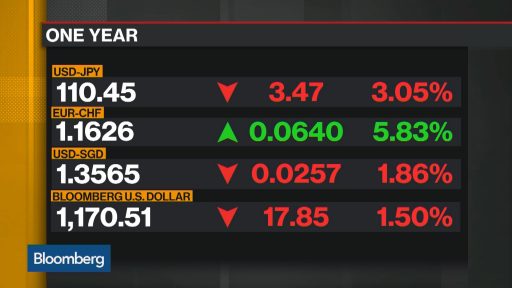- Home
- >
- Market Rumours
- >
- Here’s what you need to own and what to get rid of in case of a recession

Here's what you need to own and what to get rid of in case of a recession

If a U.S. or global recession is looming, it’s time to own the Swiss franc, Singapore dollar, U.S. dollar and Japanese yen -- and ditch emerging market currencies, according to analysts from JPMorgan Chase & Co.
“Recessions are when creditors get to ask for their money back,” analysts including Paul Meggyesi said in a note dated July 6. “Three of the top four currencies to own during a recession are those of countries that boast extremely strong external positions.”
The yen is the cheapest of the recessionary hedges, while the Singapore dollar is the least attractive, the team concluded. The U.S. currency benefits because, as the world’s default funding currency, the rest of the world needs to buy back dollars when banks and companies deleverage during recessions, the JPMorgan strategists said. The greenback has already been outperforming in recent months as trade tensions escalated.
For the record, the team said talk of a recession at this point is “premature,” though concluded it “sensible” to review contingency plans amid the likelihood of a further escalation in trade tensions.
Emerging market currencies are a “clear stand-out” as particularly susceptible to slowdowns, depreciating on average by 17 percent over a two-year period straddling the start of a recession, JPMorgan said. The New Zealand dollar is “by far” the worst performer among the G10 currencies in a recession, losing an average 7 to 8 percent, the report said.
So in case of a recession we will be looking for short positions against the Chinese yuan, the Mexican peso and the Russian rubble and long positions on the JPY, USD, CHF and SGD.
Source: Bloomberg Pro Terminal
 Trader Georgi Bozhidarov
Trader Georgi Bozhidarov Read more:
If you think, we can improve that section,
please comment. Your oppinion is imortant for us.











